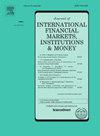ESG incidents and corporate green bond market reaction
IF 6.1
2区 经济学
Q1 BUSINESS, FINANCE
Journal of International Financial Markets Institutions & Money
Pub Date : 2025-05-29
DOI:10.1016/j.intfin.2025.102178
引用次数: 0
Abstract
This paper examines how the secondary market for corporate green bonds reacts to the announcement of Environmental, Social and Governance (ESG) incidents. We compare the cumulative abnormal returns (CARs) of green bonds with those of similar conventional bonds issued by the same firm, using a large international sample covering the period 2013–2022. Our results indicate that the performance of both green and conventional bonds declines after an ESG incident, but the decline is more pronounced for conventional bonds. We attribute this finding to the cost-effectiveness motive driving investors’ response to the ESG incident, as we find that a) there is no green premium (at issuance) in our sample, and b) green bonds are, on average, less liquid than conventional bonds, making the latter easier to sell due to lower transaction costs. Consistent with this argument, we observe opposite findings − namely, no significant performance differences and conventional bonds outperforming green bonds after the ESG incident − only in cases where green bonds exhibit higher liquidity, such as those issued by European firms or those compliant with the Climate Bond Initiative (CBI) standards.
ESG事件与企业绿色债券市场反应
本文探讨企业绿色债券二级市场对环境、社会和治理(ESG)事件公告的反应。我们使用涵盖2013-2022年期间的大型国际样本,比较了绿色债券与同一公司发行的类似传统债券的累积异常回报(CARs)。我们的研究结果表明,在ESG事件发生后,绿色债券和传统债券的表现都有所下降,但传统债券的下降更为明显。我们将这一发现归因于驱动投资者对ESG事件反应的成本效益动机,因为我们发现a)在我们的样本中没有绿色溢价(在发行时),b)平均而言,绿色债券的流动性低于传统债券,由于交易成本较低,后者更容易出售。与这一论点相一致,我们观察到相反的结果——即,在ESG事件后,只有在绿色债券表现出更高流动性的情况下,如欧洲公司发行的债券或符合气候债券倡议(CBI)标准的债券,传统债券的表现才优于绿色债券,没有显著的绩效差异。
本文章由计算机程序翻译,如有差异,请以英文原文为准。
求助全文
约1分钟内获得全文
求助全文
来源期刊
CiteScore
6.60
自引率
10.00%
发文量
142
期刊介绍:
International trade, financing and investments, and the related cash and credit transactions, have grown at an extremely rapid pace in recent years. The international monetary system has continued to evolve to accommodate the need for foreign-currency denominated transactions and in the process has provided opportunities for its ongoing observation and study. The purpose of the Journal of International Financial Markets, Institutions & Money is to publish rigorous, original articles dealing with the international aspects of financial markets, institutions and money. Theoretical/conceptual and empirical papers providing meaningful insights into the subject areas will be considered. The following topic areas, although not exhaustive, are representative of the coverage in this Journal. • International financial markets • International securities markets • Foreign exchange markets • Eurocurrency markets • International syndications • Term structures of Eurocurrency rates • Determination of exchange rates • Information, speculation and parity • Forward rates and swaps • International payment mechanisms • International commercial banking; • International investment banking • Central bank intervention • International monetary systems • Balance of payments.

 求助内容:
求助内容: 应助结果提醒方式:
应助结果提醒方式:


